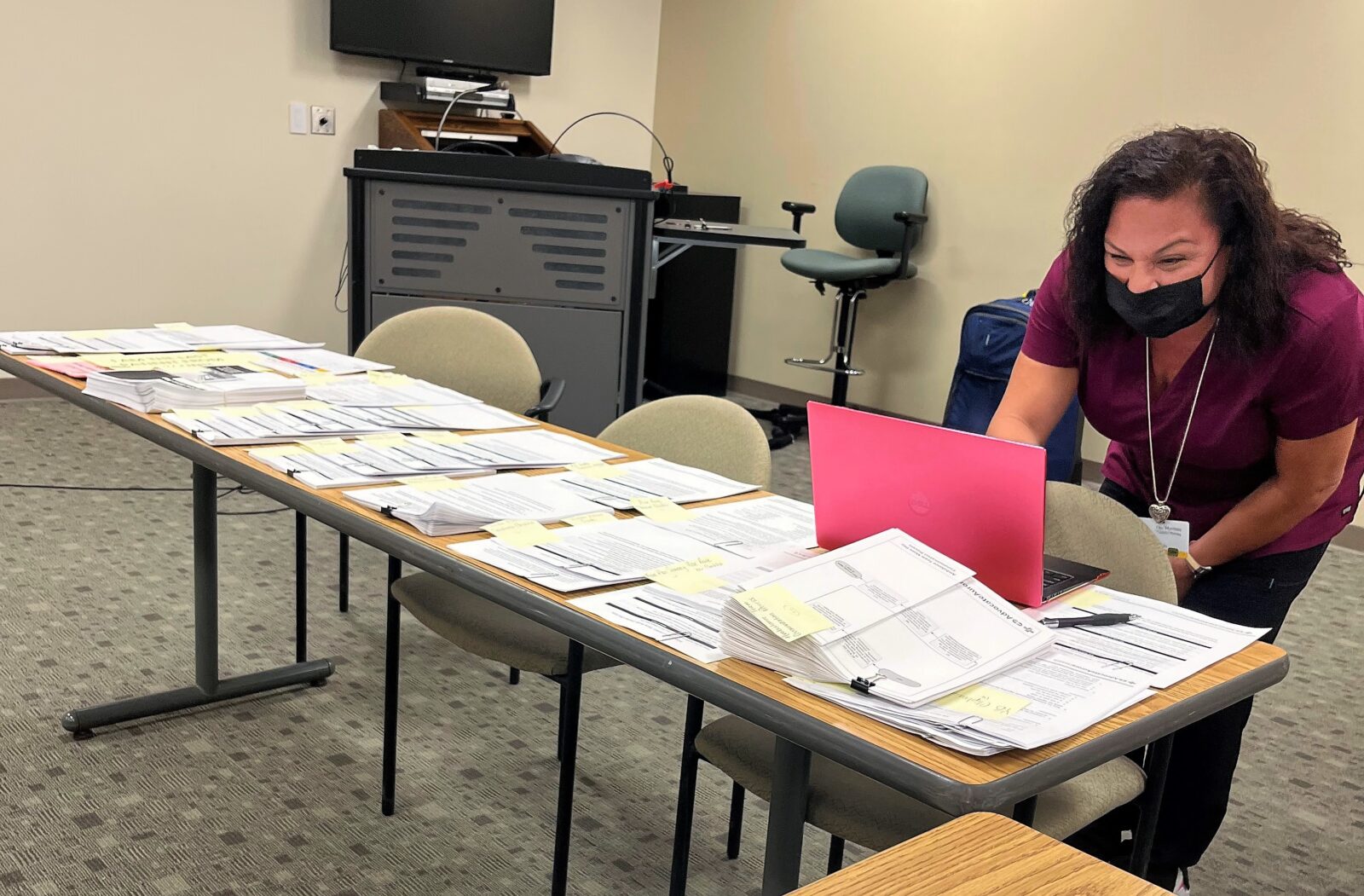By: Lisa Martinez
The success of any event is found in the planning, logistics coordination, preparation, and ultimate execution. At Yellow Brick, we often compare planning a wedding to the amount of energy and effort required to prepare for a Dress Rehearsal, Licensing Survey, or Patient Move. Throughout my 30-year career in supporting activation projects, I have coordinated hundreds of events of various sizes and complexity. Despite all healthcare projects being different, the following tried and true elements have served all my events well throughout the years
Develop A Plan and Be Ready to Adjust
“If I had six hours to chop down a tree, I’d spend the first four hours sharpening the ax.” – Abraham Lincoln
A well-developed logistics plan that speaks to resources, materials, and communication is critical to the event’s success. At Yellow Brick, we begin with the end in mind, working backward to develop an event timeline. Once the plan is developed, assign task coordinators and realistic due dates. Schedule regular plan review sessions with your team and escalate tasks behind schedule to the appropriate project sponsor. When developing your plan, the best practice is to host it on a collaborative platform, like Smartsheet, so team members can always access the latest and greatest version.
Even the most splendid plans often require adjustments, and in healthcare activation, we see this on almost every project. As an event coordinator, you must be ready to pivot when something doesn’t go as planned. Having a “Plan B” worked into your overall project plan will mitigate the impact to the project and ensure the day is still a success.
Assemble Your Own Dream Team
“No one can whistle a symphony. It takes a whole orchestra to play it.” – H.E. Luccock
The old saying, teamwork makes the dream work, comes to mind when discussing healthcare event planning. Having a solid team is so crucial. Hours and hours go into making sure the day goes as planned, so you must be able to trust that your team knows their role, will work the plan, and, most importantly not go rogue. Communications should start with the assigned team as soon as key elements for the event are confirmed. Successful event planners know their teams’ strengths and weaknesses and are ready to jump in when needed. For example, if you know, one of your team members has a knack for details, put them in charge of validating signage. Be comfortable directing people and ensure everyone has the same goal in mind – a successful event.

Tools, Tools, Tools
Tools and checklists are the backbones of all our work. Many of the required tools to support healthcare activation events often begin development far before the big day. While determining the materials needed to support the event, determine the development timeline. Evaluate what can be completed ahead of time, what might be able to be printed through a source onsite or nearby, and what information truly is just in time developed. Create a packet assembly list to guide your team in the assembly of packets. Although we would like to be able to oversee everything, the reality of these events is that you will probably be pulled in multiple directions. Having checklists for everything will support both the client team and your team in ensuring they complete the tasks required to support the day.
Always give yourself a buffer, as there are always hiccups or last minutes changes. Be gracious with yourself and your team, as healthcare activation events are high-stress days that can be as depleting as they are rewarding. If you have never planned a large-scale event before, do not start from scratch. In 2021, our team published our Dress Rehearsal planning methodology, which is an excellent resource for anyone opening a new healthcare environment. Best of luck on your journey!

